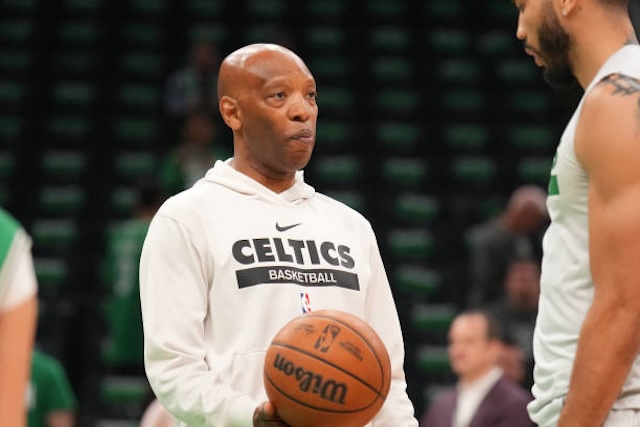Paul George, the former Clippers star, recently made headlines with his candid remarks about his experience in Los Angeles, specifically his time with the Clippers and the perceived lack of love from Lakers fans. George, known for his sharpshooting and versatility on the court, shared insights that shed light on his personal and professional journey in the city of stars.
George’s tenure in Los Angeles began in 2019 when he was traded from the Oklahoma City Thunder to the Clippers. This move marked a significant moment in his career, as he joined forces with Kawhi Leonard to form a formidable duo aimed at contending for an NBA championship. The Clippers, long overshadowed by their cross-town rivals, the Lakers, were eager to make a statement and carve out their own legacy in the city’s basketball lore.
However, George’s experience was not without its challenges. Despite his accomplishments and contributions to the team, he expressed feeling a noticeable absence of support from Lakers fans. This sentiment is particularly poignant considering George’s earlier ties to the city. Growing up in Palmdale, California, just outside of Los Angeles, George developed a deep connection to the area. His rise to stardom in the NBA seemed to align perfectly with the opportunity to play for one of the city’s storied franchises.
Yet, fate took George on a different path. Instead of donning the purple and gold of the Lakers, he found himself wearing the Clippers’ red, white, and blue. This decision not only positioned him as a direct competitor to the Lakers but also thrust him into a city where basketball allegiances run deep and are fiercely defended.
George’s reflections on his time with the Clippers highlight the complexities of being an athlete in Los Angeles. Beyond the on-court battles and the pursuit of championships, players often navigate the intricate dynamics of fan loyalty and city-wide expectations. For George, the transition from being a potential Lakers star to a Clippers leader meant not only adapting to a new team culture but also reconciling with the realities of fan reception.
In his remarks, George acknowledged the contrast between the Lakers’ historical prominence and the Clippers’ quest to establish themselves as a legitimate force in the NBA. While the Clippers have made strides in recent years, including playoff successes and a growing fan base, they continue to operate in the shadow of their more celebrated neighbors. This backdrop adds layers to George’s experience, underscoring the pressures and motivations that drive athletes to excel in one of the league’s most scrutinized markets.
Despite the challenges, George’s time with the Clippers was marked by notable achievements and personal growth. He played a pivotal role in the team’s playoff campaigns and earned recognition for his on-court contributions. Off the court, George’s openness about his mental health struggles further endeared him to fans who appreciated his vulnerability and resilience in the face of adversity.
As George continues his basketball journey, now with the Los Angeles Clippers, his reflections on his time in the city serve as a reminder of the intricate relationship between athletes, fans, and the cities they represent. His story is not just about basketball prowess but also about the human experience of navigating expectations, setbacks, and triumphs in pursuit of greatness.
In conclusion, Paul George’s comments about not feeling the love from Lakers fans during his time in Los Angeles reflect a deeper narrative about sports, identity, and community. His journey from potential Lakers star to Clippers leader underscores the complexities of playing in a city with such rich basketball history and passionate fan bases. George’s story serves as a compelling reminder that behind every athlete’s performance lies a personal journey shaped by aspirations, challenges, and the quest for acceptance.



